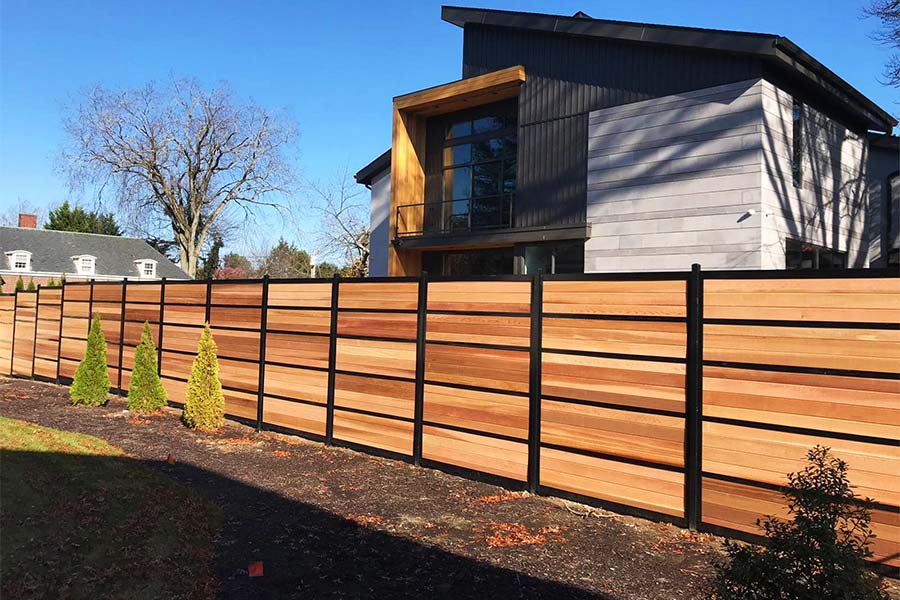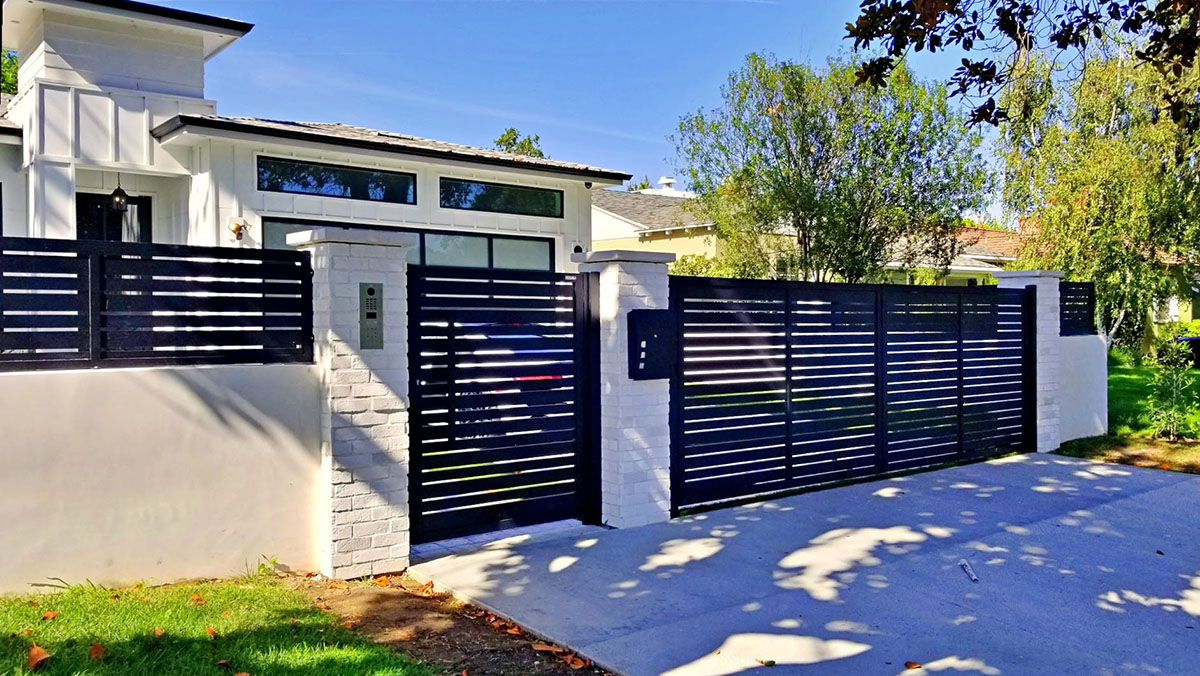All Categories
Featured
It's vital to understand the license demands particular to your area when you decide to install a fencing around your household home. While setting up a fence can appear like a straightforward home enhancement project, neighborhood laws and laws must be followed to make sure the installation is compliant and legal. Stopping working to secure the correct authorizations can result in penalties or also need you to get rid of the fencing. Right here's a detailed take a look at the authorizations you may require for fence installment.
Why Do You Required an Authorization for Fencing Installation? A fencing is greater than simply a barrier in between buildings-- it can impact safety, residential or commercial property value, visual appeals, and even ecological conditions. Neighborhood federal governments call for permits to make sure that fencings fulfill certain standards and do not cause problems for utilities, neighbors, or the community as a whole. Authorizations also guarantee that the installment adheres to zoning legislations, developing codes, and security policies.
![]()
Types of Authorizations You May Require. Structure Authorization. A building authorization is one of the most usual permits required for fence installment. If you're constructing a fence over a certain height (normally over 6 feet), you'll likely need a building authorization.
Zoning Permit. A zoning authorization ensures your fencing abides with elevation, place, and trouble policies. Fences might require to be set back a specific distance from walkways, roadways, or home lines to avoid blockage or disturbance with energies.
HOA Authorization. You might require to look for approval prior to mounting a fence if your property is part of a home owners organization (HOA) HOAs generally have standards that govern the aesthetic appeals and framework of fencings to ensure they are in harmony with the area. You might need to send your plans for approval, and the HOA may restrict fence elevation, style, or product.
Specialty Permits. In some locations, there might be additional authorizations required for particular scenarios. If your fence is near a protected ecological area or located in a flooding area, you might need to get specialized licenses related to environmental effect. If the fence is in a location with underground utilities, you might need to obtain clearance to stay clear of destructive pipelines or cords.
![]()
Easement or Utility Business Consent. Before setting up a fencing, it's vital to examine whether the residential property consists of an easement, such as an utility easement, which can impact where you can put your fence. Easements are areas of land assigned for public or private utilities, and you may need approval from the utility company or various other authority to develop within this location.
Exactly How to Figure Out What Permits You Required. To guarantee that you're following all the required laws, here's exactly how you can establish the particular permits required for your fence installment:
![]()
Go To Your City Government Workplace: The very first step is to talk to your neighborhood structure or zoning division. Lots of cities and counties have guidelines available online that define what kinds of licenses are required for fence installment. Otherwise, going to the workplace or calling in person can help make clear the process. Check Your City's Internet site: Several districts supply details about fencing installments and the authorizations required via their official websites. Some internet sites also enable you to submit applications on-line. Seek Advice From a Fencing Installment Specialist: If you're not exactly sure about regional regulations, a specialist fencing specialist can help. They recognize with the permitting procedure and can guide you through the steps. The Effects of Not Obtaining an Authorization. Failing to safeguard the required licenses before mounting a fencing can result in considerable repercussions. You may be fined or called for to get rid of the fence totally. Furthermore, if you decide to market your building in the future, the absence of a license can deter possible purchasers, as they might see it as an indication that the property is not compliant with neighborhood legislations. Making sure that you have the appropriate authorizations will save you time, cash, and headaches in the future.
Final thought. Installing a fence around your household property can add both safety and security and visual allure, yet it's important to ensure you're following the legal action in the process. Looking into the particular authorization needs for your location, including building permits, zoning laws, HOA approval, and utility consents, will certainly help guarantee your fencing installment goes efficiently. Taking the time to comprehend these requirements now can save you from expensive mistakes and potential lawful concerns down the line.
Why Do You Required an Authorization for Fencing Installation? A fencing is greater than simply a barrier in between buildings-- it can impact safety, residential or commercial property value, visual appeals, and even ecological conditions. Neighborhood federal governments call for permits to make sure that fencings fulfill certain standards and do not cause problems for utilities, neighbors, or the community as a whole. Authorizations also guarantee that the installment adheres to zoning legislations, developing codes, and security policies.

Types of Authorizations You May Require. Structure Authorization. A building authorization is one of the most usual permits required for fence installment. If you're constructing a fence over a certain height (normally over 6 feet), you'll likely need a building authorization.
Zoning Permit. A zoning authorization ensures your fencing abides with elevation, place, and trouble policies. Fences might require to be set back a specific distance from walkways, roadways, or home lines to avoid blockage or disturbance with energies.
HOA Authorization. You might require to look for approval prior to mounting a fence if your property is part of a home owners organization (HOA) HOAs generally have standards that govern the aesthetic appeals and framework of fencings to ensure they are in harmony with the area. You might need to send your plans for approval, and the HOA may restrict fence elevation, style, or product.
Specialty Permits. In some locations, there might be additional authorizations required for particular scenarios. If your fence is near a protected ecological area or located in a flooding area, you might need to get specialized licenses related to environmental effect. If the fence is in a location with underground utilities, you might need to obtain clearance to stay clear of destructive pipelines or cords.

Easement or Utility Business Consent. Before setting up a fencing, it's vital to examine whether the residential property consists of an easement, such as an utility easement, which can impact where you can put your fence. Easements are areas of land assigned for public or private utilities, and you may need approval from the utility company or various other authority to develop within this location.
Exactly How to Figure Out What Permits You Required. To guarantee that you're following all the required laws, here's exactly how you can establish the particular permits required for your fence installment:

Go To Your City Government Workplace: The very first step is to talk to your neighborhood structure or zoning division. Lots of cities and counties have guidelines available online that define what kinds of licenses are required for fence installment. Otherwise, going to the workplace or calling in person can help make clear the process. Check Your City's Internet site: Several districts supply details about fencing installments and the authorizations required via their official websites. Some internet sites also enable you to submit applications on-line. Seek Advice From a Fencing Installment Specialist: If you're not exactly sure about regional regulations, a specialist fencing specialist can help. They recognize with the permitting procedure and can guide you through the steps. The Effects of Not Obtaining an Authorization. Failing to safeguard the required licenses before mounting a fencing can result in considerable repercussions. You may be fined or called for to get rid of the fence totally. Furthermore, if you decide to market your building in the future, the absence of a license can deter possible purchasers, as they might see it as an indication that the property is not compliant with neighborhood legislations. Making sure that you have the appropriate authorizations will save you time, cash, and headaches in the future.
Final thought. Installing a fence around your household property can add both safety and security and visual allure, yet it's important to ensure you're following the legal action in the process. Looking into the particular authorization needs for your location, including building permits, zoning laws, HOA approval, and utility consents, will certainly help guarantee your fencing installment goes efficiently. Taking the time to comprehend these requirements now can save you from expensive mistakes and potential lawful concerns down the line.
Latest Posts
Take Advantage of Limited-Time Auto Repair Deals in Chicago at Montclare Auto Repair
Published en
1 min read
Improve Your Home's Outside with Weathercraft's Siding Solutions
Published en
1 min read
Unlock Your Financial Partner at WyHy – Key Advantages for Your Financial Success
Published en
1 min read
More
Latest Posts
Take Advantage of Limited-Time Auto Repair Deals in Chicago at Montclare Auto Repair
Published May 28, 25
1 min read
Improve Your Home's Outside with Weathercraft's Siding Solutions
Published May 27, 25
1 min read
Unlock Your Financial Partner at WyHy – Key Advantages for Your Financial Success
Published May 25, 25
1 min read